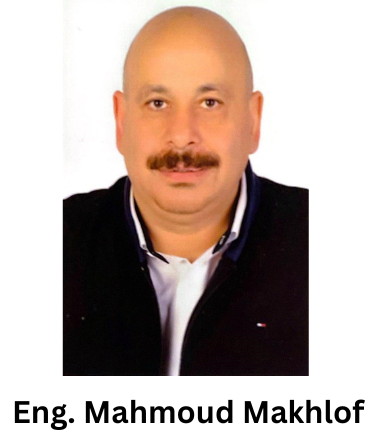
In an era defined by rapid technological advancements, the significance of digital transformation cannot be overstated. Eng. Mahmoud Makhlof, Rotary’s Sodic West district governor elect, recently addressed this urgent matter, highlighting its critical importance for Rotarians worldwide.
As the landscape of communication and collaboration shifts with the rise of artificial intelligence (AI) and digital innovations, it is imperative that Rotarians embrace these changes to remain relevant and effective in their mission. At the heart of this digital evolution is the concept of a digital identity for every Rotarian.
Makhlof emphasized that establishing a unique online presence for each member is a foundational step towards enhancing communication and collaboration. A digital identity serves as a gateway for Rotarians to connect, share ideas, and engage with one another across borders more seamlessly than ever before. One of the key benefits of having a digital identity is the facilitation of communication among Rotarians globally. In today’s interconnected world, the ability to communicate effortlessly can lead to increased collaboration on projects, sharing of resources, and mutual support. Makhlof advocated for the creation of digital platforms tailored for Rotarians, where members can exchange knowledge, best practices, and innovative ideas without the limitations of geographical barriers. Moreover, enhancing digital communication is not just about ease and efficiency; it is also about ensuring the security and preservation of dialogues.
In a landscape rife with data breaches and privacy concerns, a securely managed digital identity can protect sensitive information, fostering an environment where members feel safe to engage openly and honestly. By investing in reliable communication platforms, Rotarians can keep their discussions secure while strengthening their bonds through transparency.
Makhlof also pointed out that a digital identity enables the identification of both strengths and areas for improvement within the Rotary community. By collecting and analyzing data on member interactions, projects, and impacts, Rotary can better understand the effectiveness of its initiatives. This data-driven approach will allow for the optimization of resources and efforts, ensuring that the organization continues to thrive and adapt to the ever-changing needs of the communities they serve. Establishing digital identities is not purely an internal initiative; it also serves a vital external purpose. By framing public services in the most suitable context, Rotarians can articulate their goals and achievements to a broader audience. A strong digital presence enables the organization to connect with potential partners, donors, and volunteers, ultimately enhancing its impact in communities worldwide. In this way, digital transformation serves as a bridge, fostering a two-way conversation between Rotary and the public.
In conclusion, Eng. Mahmoud Makhlof‘s insights on the importance of digital transformation resonate deeply with the vision of Rotary International. As the organization navigates the complexities of a digital age, it is crucial for each Rotarian to embrace their digital identity. This transformative step will not only enhance communication and collaboration within the Rotary community but also empower members to serve their communities more effectively. As we look towards the future, let us all commit to harnessing the power of digital transformation for a stronger, more connected Rotary.

No responses yet